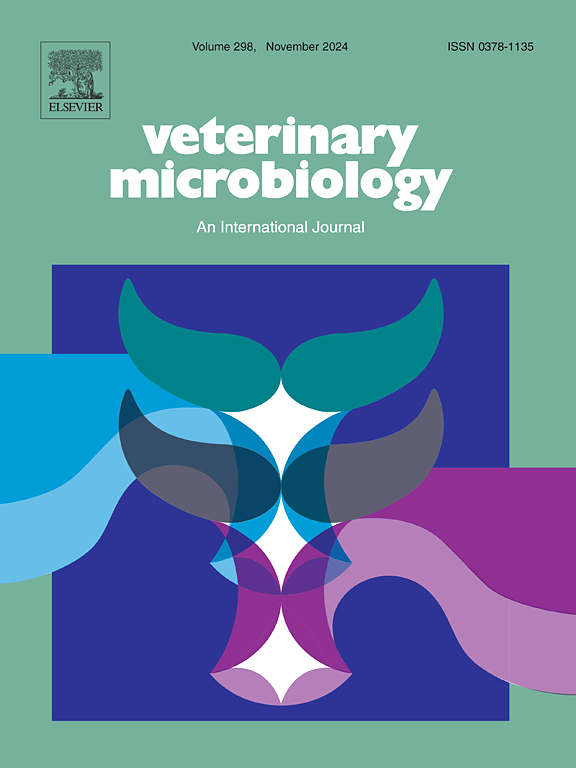Critical role for heat shock protein 70 in viral replication of ALV-J via interaction with gp37 and P32
IF 2.4
2区 农林科学
Q3 MICROBIOLOGY
引用次数: 0
Abstract
Avian leukemia virus subgroup J (ALV-J) causes various diseases associated with tumor formation, decreased fertility and immunosuppression, resulting in significant economic losses in the poultry industry globally. Virus usually exploits the host cellular machinery for their replication. Although there are increasing evidences for the cellular proteins involving viral replication, the interaction between ALV-J and host proteins leading to the pivotal steps of viral life cycle are still unclear. Here, we reported that the heat shock protein 70 (Hsp70) plays a critical role during ALV-J infection by interacting with gp37 and P32. Changing the expression of Hsp70 affects the replication of ALV-J in host cells, and inhibitory of Hsp70 using the specific inhibitors JG-98 or Pifithrin-μ significantly reduced viral replication. This study revealed the effect of host Hsp70 on ALV-J replication, providing insights for further studies of the molecular mechanism of ALV-J infection.
求助全文
约1分钟内获得全文
求助全文
来源期刊

Veterinary microbiology
农林科学-兽医学
CiteScore
5.90
自引率
6.10%
发文量
221
审稿时长
52 days
期刊介绍:
Veterinary Microbiology is concerned with microbial (bacterial, fungal, viral) diseases of domesticated vertebrate animals (livestock, companion animals, fur-bearing animals, game, poultry, fish) that supply food, other useful products or companionship. In addition, Microbial diseases of wild animals living in captivity, or as members of the feral fauna will also be considered if the infections are of interest because of their interrelation with humans (zoonoses) and/or domestic animals. Studies of antimicrobial resistance are also included, provided that the results represent a substantial advance in knowledge. Authors are strongly encouraged to read - prior to submission - the Editorials (''Scope or cope'' and ''Scope or cope II'') published previously in the journal. The Editors reserve the right to suggest submission to another journal for those papers which they feel would be more appropriate for consideration by that journal.
Original research papers of high quality and novelty on aspects of control, host response, molecular biology, pathogenesis, prevention, and treatment of microbial diseases of animals are published. Papers dealing primarily with immunology, epidemiology, molecular biology and antiviral or microbial agents will only be considered if they demonstrate a clear impact on a disease. Papers focusing solely on diagnostic techniques (such as another PCR protocol or ELISA) will not be published - focus should be on a microorganism and not on a particular technique. Papers only reporting microbial sequences, transcriptomics data, or proteomics data will not be considered unless the results represent a substantial advance in knowledge.
Drug trial papers will be considered if they have general application or significance. Papers on the identification of microorganisms will also be considered, but detailed taxonomic studies do not fall within the scope of the journal. Case reports will not be published, unless they have general application or contain novel aspects. Papers of geographically limited interest, which repeat what had been established elsewhere will not be considered. The readership of the journal is global.
 求助内容:
求助内容: 应助结果提醒方式:
应助结果提醒方式:


